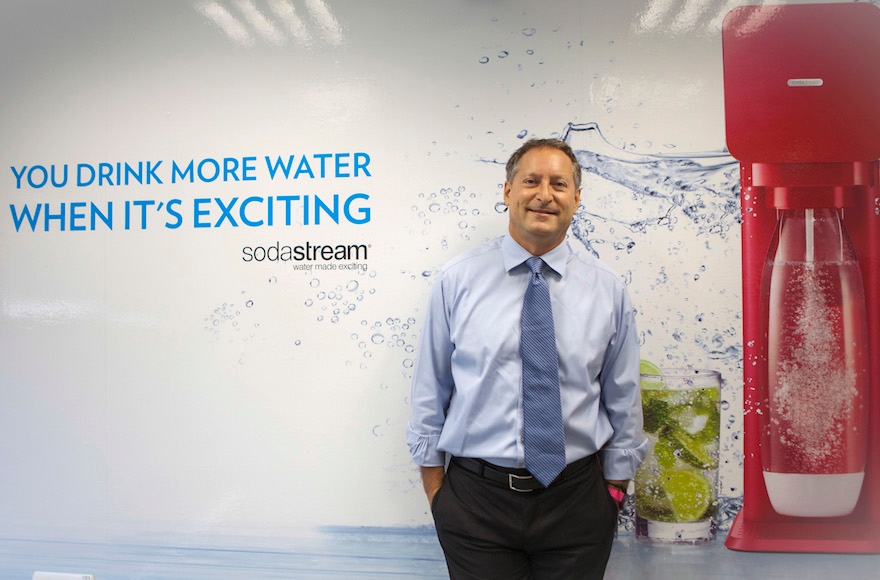SodaStream enters Latin American market through Argentina
Published December 5, 2017

Sodastream CEO Daniel Birnbaum posing for a photograph at the SodaStream factory next to the city of Rahat, Israel. (Dan Balilty/AP Images)
BUENOS AIRES (JTA) — The Israeli seltzer company SodaStream will begin operating in Argentina as a first step to selling its products throughout Latin America.
The company will invest approximately $36 million in its first industrial plant in Argentina. “Here is the first country where we are going to settle with an office, then we will go to Brazil, Uruguay, Chile and Colombia; for us, Argentina is the capital of Latin America,” announced SodaStream CEO Daniel Birnbaum on Thursday in Buenos Aires.
Among the factors triggering the decision to establish the plant in Argentina is the large consumption of soda and recent agreements signed between Argentina and Israel. Argentina is the second-largest consumer of soda in the world, with 80 liters per capita annually, behind Germany, with a soda consumption of 160 liters.
Last September, during the first visit of a siting Israeli Prime Minister to Argentina and the region, Benjamin Netanyahu and Argentinean President Mauricio Macri signed a cooperation agreement between both countries to promote investment and trade.
In September 2011, Argentina signed a free trade agreement with Israel. Israel’s trade agreement with countries that belong to the South American joint market known as Mercosur — namely Brazil, Uruguay and Paraguay — went into effect in June 2010, and in September 2011 with Argentina.
The factory in Argentina will manufacture the soda-making equipment for the Argentinean market, as well as some merchandise to be shipped out to the region. The factory will employ approximately 100 people.
The Israeli company launched also a website in Spanish and sells its products in major cities throughout the country.
In October 2014, SodaStream announced it would close its factory in the West Bank settlement of Maale Adumim and move to southern Israel in the face of pressure from the Boycott, Divestment and Sanctions movement, or BDS, which seeks to hurt Israel’s economy over its policies toward the Palestinians. The movement claimed that SodaStream discriminated against Palestinian workers and paid some less than Israeli workers. Some 500 Palestinian employees lost their jobs at that time. The company now has more than 1,400 employees in the Idan Hanegev industrial park near Rahat, one-third of them Bedouin Arabs from the surrounding area.













